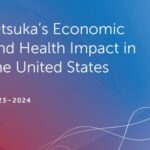
Jan 29, 2018 | Op-Eds
Republican lawmakers who oppose a carbon tax are usually motivated by a belief that their constituents will get a raw deal. But standard political commentary on carbon taxation focuses on the higher costs for goods such as gasoline and electricity. Looking at who wins and who loses from a revenue-neutral carbon tax — one that also cuts existing taxes on work — yields a very different answer.

Jan 23, 2018 | Op-Eds
Cigarettes are known killers, with nearly one in five deaths each year in the United States attributable to smoking. But there is a chance that U.S. smokers may soon be able to choose a less harmful alternative.

Jan 16, 2018 | Op-Eds
No one disputes that opioid abuse has caused an epidemic in our country, one that costs tens of billions, if not hundreds of billions, of dollars per year. Less well known, but of vital importance to policymakers, is how these costs are distributed. Opioid abuse rates and deaths vary considerably from state to state, as do the costs associated with this epidemic. But researchers have generally focused on the economic impact of the crisis in the aggregate, at the US level. In a new analysis, I estimate the cost at the state level and find substantial variation across the country. Here, I offer a preview of my findings, which will be released in full next month.

Jan 5, 2018 | Interviews
“Those with a college degree or more have been enjoying a relatively tight labor market for a long time with unemployment rates near 2%. But it’s those with high school or less than high school degrees that had very high unemployment rates that now have the lowest unemployment rates they have ever seen around 5%. So things are pretty good across the spectrum both geographically and by the education dynamic.”















